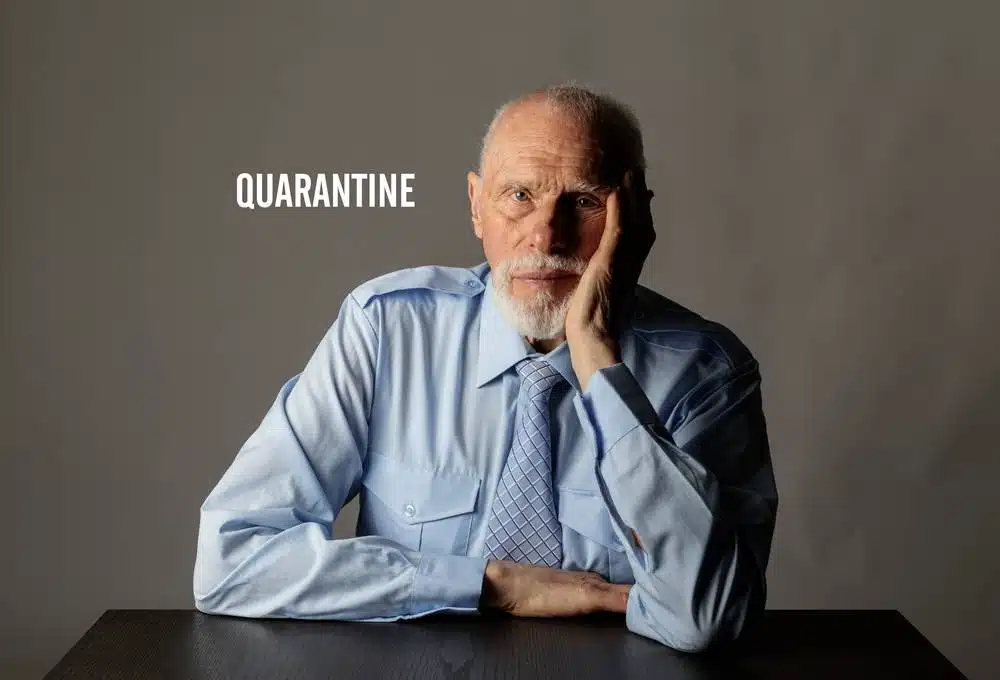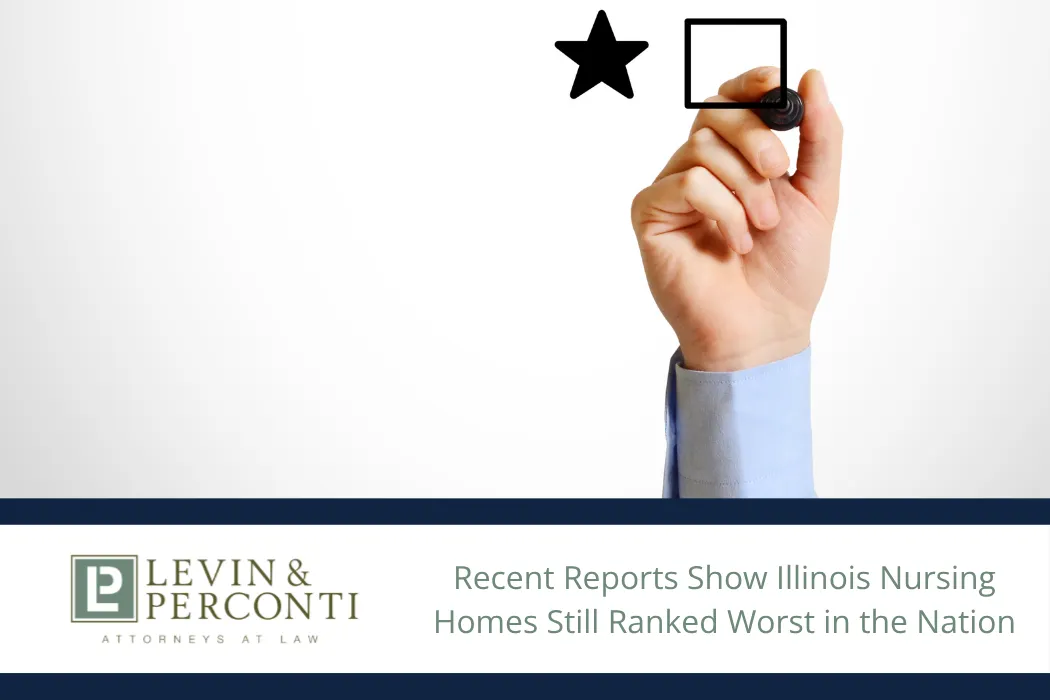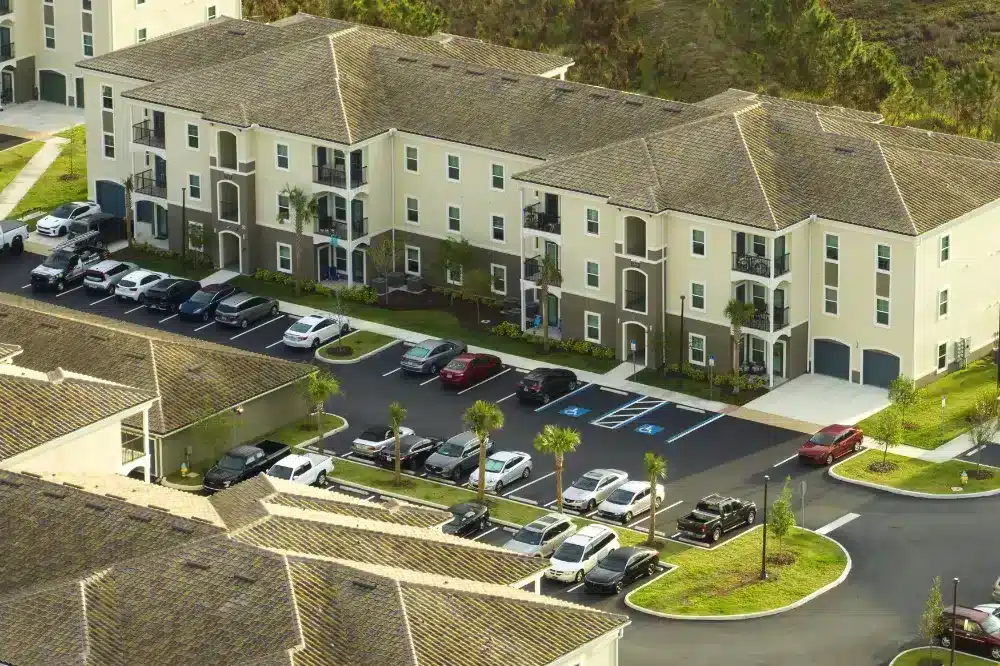After A Disastrous 2020, Please Make Time to Recognize Older Adult Communities
People age 65 and older represent around 16% of the population but are expected to grow to be 21.6% of the population by 2040. And in each community, these older adults will remain a key source of importance – even when they become vulnerable and rely on others for their daily activities and care. In the past year, we’ve seen this time and again in aging communities across Chicago and throughout Illinois as friends, neighbors, and families have found new ways to support each other. Through these experiences, successes, and difficulties, older Americans have built resilience that helps them face new challenges. When communities tap into this, they become stronger too.
Each May, the Administration for Community Living leads the celebration of Older Americans Month (OAM). This year’s theme is Communities of Strength, recognizing the vital role older adults play in fostering the connection and engagement that build strong, resilient communities.
We believe our elders should be recognized. That is why the nursing home abuse and neglect lawyers at Levin & Perconti will celebrate OAM by encouraging community members to create a stronger and more hopeful future for our eldest generation.
Here are some ways to share and connect with the older adults in your life:
- Look for the joy in the everyday: Celebrate small moments and ordinary pleasures by taking time to recognize them. Start a gratitude journal and share it with others via social media, or call a friend or family member to share a happy moment or to say thank you.
- Reach out to neighbors: Even if you can’t get together in person right now, you can still connect with your neighbors, including nursing home residents. Leave a small gift on their doorstep, offer to help coordinate a phone call, or shop and deliver goods that they may need.
- Build new skills: Learning something new allows us to practice overcoming challenges. Take an art course online or try a socially distanced outdoor movement class to enjoy learning with others in your community. Have a skill to share? Find an opportunity to teach someone, even casually.
- Share your story: There’s a reason storytelling is a time-honored activity. Hearing how others experience the world helps us grow. Interviewing family, friends, and neighbors can open up new conversations and strengthen our connections.
Please join Levin & Perconti to strengthen our senior community by following our weekly nursing home blog, interacting with us on Facebook and our social media pages, visiting the official OAM website, and joining the online conversation using #OlderAmericansMonth.
Who Are Today’s Older Americans?
The 85 and older population is projected to more than double from 6.5 million in 2018 to 14.4 million in 2040 (a 123% increase). In 2019, the Administration for Community Living agency released the Profile of Older Americans report and shared these findings related to the growing population.
- Over the past ten years, the population age 65 and older increased from 38.8 million in 2008 to 52.4 million in 2018 (a 35% increase) and is projected to reach 94.7 million in 2060.
- Around 1.2 million age 65 and older lived in nursing homes in 2018. This percentage increases dramatically with age, ranging from 1% for persons ages 65-74 to 2% for persons ages 75-84 and 7% for persons over age 85.
- Racial and ethnic minority populations have increased from 7.5 million in 2008 (19% of the older adult population) to 12.3 million in 2018 (23% of older adults). They are projected to increase to 27.7 million in 2040 (34% of older adults).
- The number of Americans age 45-64—who will reach age 65 during the next two decades—increased by 7% between 2008 and 2018.
- There were 93,927 persons aged 100 and older in 2018 (0.2% of the total age 65 and older).
- In 2018, older women outnumbered older men at 29.1 million older women to 23.3 million older men.
- As of 2019, about 28% (14.7 million) of older persons lived alone (5 million men, 9.7 million women). Among women age 75 and older, 44% lived alone.
- In 2018, nearly 1 in 10 people age 65 and older (9.7% or 5.1 million) lived below the poverty level. This poverty rate is not statistically different from the poverty rate in 2017 (9.2%). Another 2.3 million or 4.4% of older adults were classified as “near-poor” (income between the poverty level and 125% of this level).
- In 2018, 51% of persons age 65 and older lived in 9 states: California (5.7 million); Florida (4.4 million); Texas (3.6 million); New York (3.2 million); Pennsylvania (2.3 million); Ohio (2 million); Illinois (2 million); Michigan (1.7 million); and North Carolina (1.7 million). Georgia, New Jersey, Virginia, Arizona, Washington, Massachusetts, Tennessee, Indiana, and Missouri each had more than 1 million people age 65 and older in 2018.
- The need for caregiving increases with age. In 2018, the percentage of older adults age 85 and older who needed help with personal care (21%) was more than twice the percentage for adults ages 75–84 (8%) and five times the percentage for adults ages 65–74 (4%).
- The 85 and older population is projected to more than double from 6.5 million in 2018 to 14.4 million in 2040 (a 123% increase).
If you are engaged in the livelihood and health of an older American either at home or in a long-term care setting, keep in mind that their care and well-being often includes a combination of family support, aid from professional caregivers, health care providers, health insurance companies, public policy-makers, and more. It is essential to stay involved in their care system and hold wrongdoers accountable when cases of abuse or negligence have been discovered. There is a time limit in Illinois to file a case like this, so please contact us now for a free consultation with one of our skilled nursing home attorneys.
COVID-19 Reminds Us of The Resilience of Older Adults
This OAM, we will celebrate the strength of older adults as we emerge from a pandemic that swept not only through Illinois but inflicted misery across the country. In 2020, more than 16,000 Illinoisans died from COVID-19, disproportionately the elderly. For those who have won their battle against the disease, their resilience and strength have inspired others. It was through their bold acts of survival when nursing homes and long-term care facilities across the state battled COVID-19 outbreaks, were short-staffed, and often left without the proper resources such as personal protection equipment (PPE) to do their jobs, that we have again been reminded of just how far the nursing home industry is from providing these individuals with the care and attention they deserve.
Too many COVID-19 deaths were the tragically foreseeable consequences of years of neglect and abuse at nursing homes. Before this crisis began, the nationally renowned nursing home abuse and neglect attorneys at Levin & Perconti were working to protect nursing home residents and employees from harm related to poor-performing facilities that continue to fail meeting quality of life care standards by choosing to:
- Understaff and underpay its workforce
- Fail to provide healthcare workers the tools to perform their jobs safely, such as personal protection equipment and the training and skills required to prevent the spread of infectious diseases
- Ignore hygiene and infectious disease guidelines
The coronavirus pandemic has only magnified these systemic breakdowns. And the mass horror of how many facilities continue to fail both residents and staff is unacceptable. Nursing home owners and administrators have put thousands of individuals at considerable risk of injury, sickness, and COVID-related deaths, especially in the greater Chicago area, where the number of cases and outbreaks tripled in only a matter of months during 2019 due to ongoing issues not being addressed.
Levin & Perconti’s nursing home abuse and neglect attorneys will continue to listen to and represent Illinois’s abused and neglected elders in making legal claims. Through our actions, we believe we can help build older American’s resilience, reinforce their strength, and allow them to continue with their recovery in a setting that protects their rights and health, and safety.
Experienced Attorneys Who Speak Against Those Who Harm Older Americans
At Levin & Perconti, we have a history of being leading advocates. We will continue taking steps to limit the chance for vulnerable individuals to be hurt or taken advantage of, especially older Americans. Our experiences have helped us empathize with victims and help families move forward once trust has been broken.
Levin & Perconti’s nursing home abuse and neglect attorneys can help you or your loved one if you are considering a legal case against a U.S. nursing home. Please contact us for a free consultation at 877-374-1417 or in Chicago at 312-332-2872. All calls and discussions with our attorneys are confidential.



